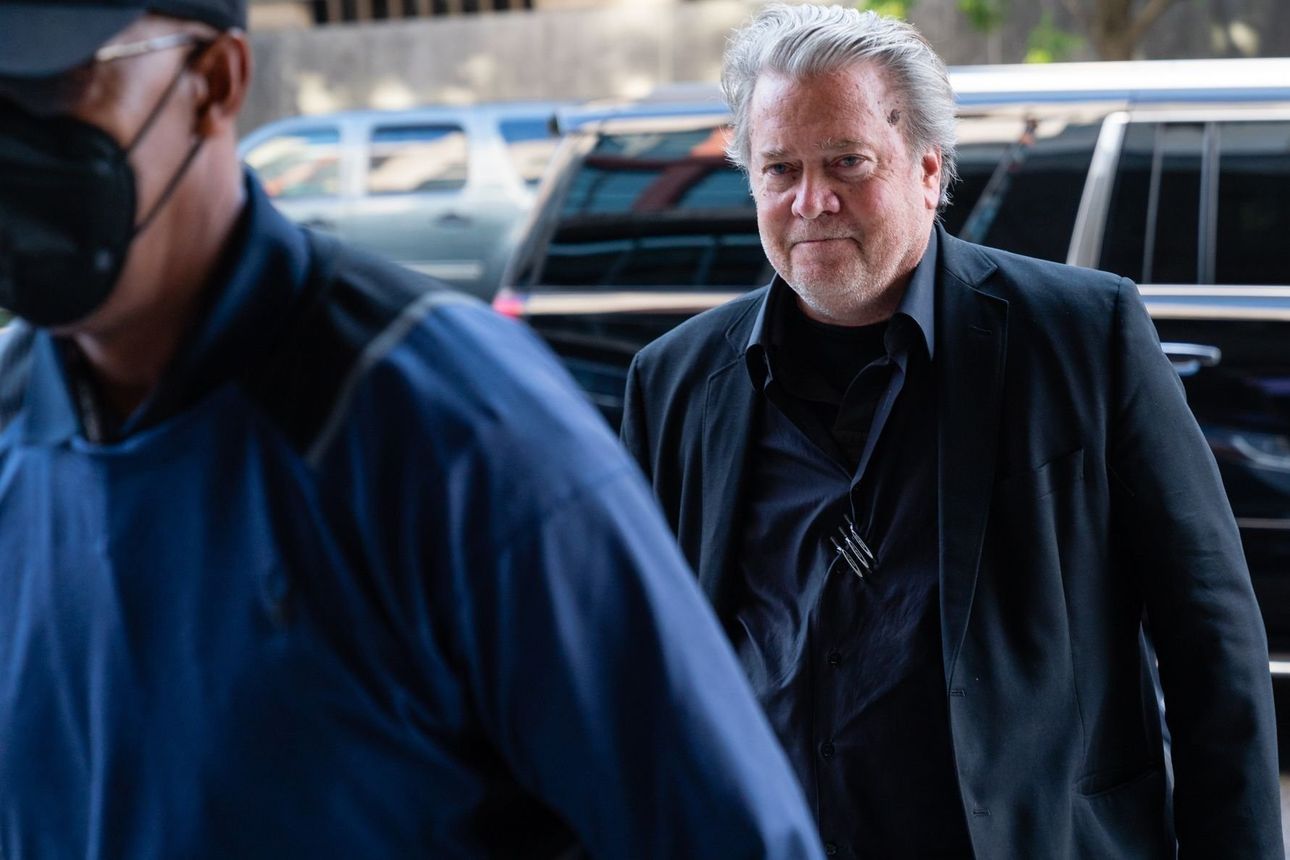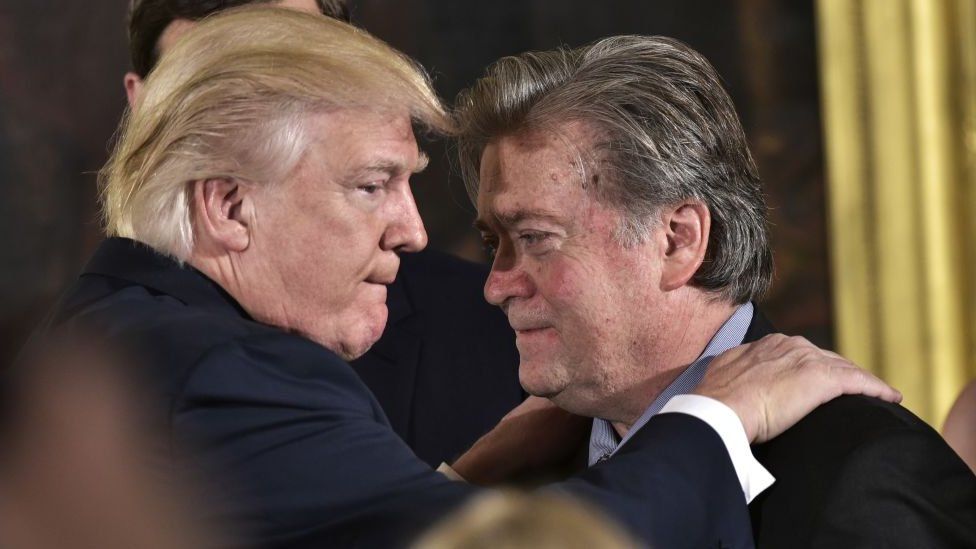
Steve Bannon Found Guilty of Contempt of Congress
The jury determines former Trump adviser defied a subpoena issued by House Jan. 6 committee
Former Trump strategist Steve Bannon was found guilty of contempt of Congress, giving the Justice Department and the House select committee probing the Capitol attack on January 6, 2021, a victory.
After roughly three hours of discussion, the federal jury found him guilty on both counts of contempt for illegally ignoring a subpoena issued by the Jan. 6 panel, which sought both records and testimony. Mr. Bannon will be sentenced in October and faces a minimum of 30 days in prison and a maximum of one year in prison for each offense.
The ruling could aid congressional investigators in obtaining testimony from obstinate witnesses in the investigation and future probes. The verdict also helps the Justice Department prepare for a similar contempt of Congress trial against former Trump adviser Peter Navarro, who, like Mr. Bannon, refused to comply with the Jan. 6 committee.
David Schoen, one of Mr. Bannon’s lawyers, said they would appeal on the grounds that pretrial rulings improperly blocked jurors from hearing key evidence and arguments.
“You will see this case reversed on appeal,” Mr. Schoen said, adding that the verdict was a “foregone conclusion” because of those pretrial rulings.
Justice Department lawyers argued during the weeklong trial that Mr. Bannon “thumbed his nose” at Congress by defying the subpoena.
Prosecutor Molly Gaston stated in closing arguments that Mr. Bannon “has contempt for our form of governance and does not believe he needs to play by the rules.”
One of Mr. Bannon’s defense lawyers, Evan Corcoran, contested that scenario, claiming that the timelines established for compliance with the subpoena were adjustable and that Mr. Bannon tried to negotiate with the committee about when he would attend and what he could speak about.
“Those dates in the subpoena were simply placeholders,” Mr. Corcoran explained. “The dates in the subpoena are still being worked out.”
Mr. Corcoran also labeled the case “politically tainted” because the prosecution’s principal witness, congressional lawyer Kristin Amerling, has worked for Democratic Party members, given to Democrats.

Mr. Bannon, 68 years old, worked as a strategist during the beginning of the Trump administration.
In 2020, federal prosecutors charged Mr. Bannon in an unrelated fraud case with stealing hundreds of thousands of dollars from a crowdfunding campaign to build a wall along the United States’ southern border with Mexico. Former President Donald Trump pardoned Mr. Bannon, who had pleaded not guilty and was awaiting trial in Manhattan federal court, in January 2021.
Mr. Bannon was not a White House official throughout the 2020 election, but he continued to assist Mr. Trump during that time. Mr. Bannon remarked on his podcast the night before the January 2021 riot at the Capitol, “All hell is going to break free tomorrow.”
Mr. Bannon was subpoenaed by a House committee last September, demanding that he give over documents and appear for a deposition in October. Mr. Bannon was charged with two counts of contempt of Congress by the Justice Department in November of last year.
Contempt of Congress is a rare misdemeanor violation punishable by up to a year in jail for each count.
In court documents, Mr. Bannon stated that he did not comply with the committee due to legal advice he received and worries about presidential privilege, a legal tenet that preserves the confidentiality of some White House discussions.
Mr. Bannon was barred from delivering those points directly to the jury by U.S. District Judge Carl Nichols, citing a lack of legal backing. According to Mr. Bannon’s counsel, the pretrial rulings have hampered his defense.
“What’s the sense of going to trial here if there are no defenses?” David Schoen, one of Mr. Bannon’s defense lawyers asked.
Mr. Bannon made a last-minute offer to speak before the committee on Jan. 6, saying he would like to do it in public. Mr. Bannon stated that he changed his mind after Mr. Trump waived executive privilege.
Prosecutors said that executive privilege was never invoked properly in the first place.
According to Judge Nichols, Mr. Bannon’s promise to testify was irrelevant to whether he defaulted on the subpoena months earlier.
